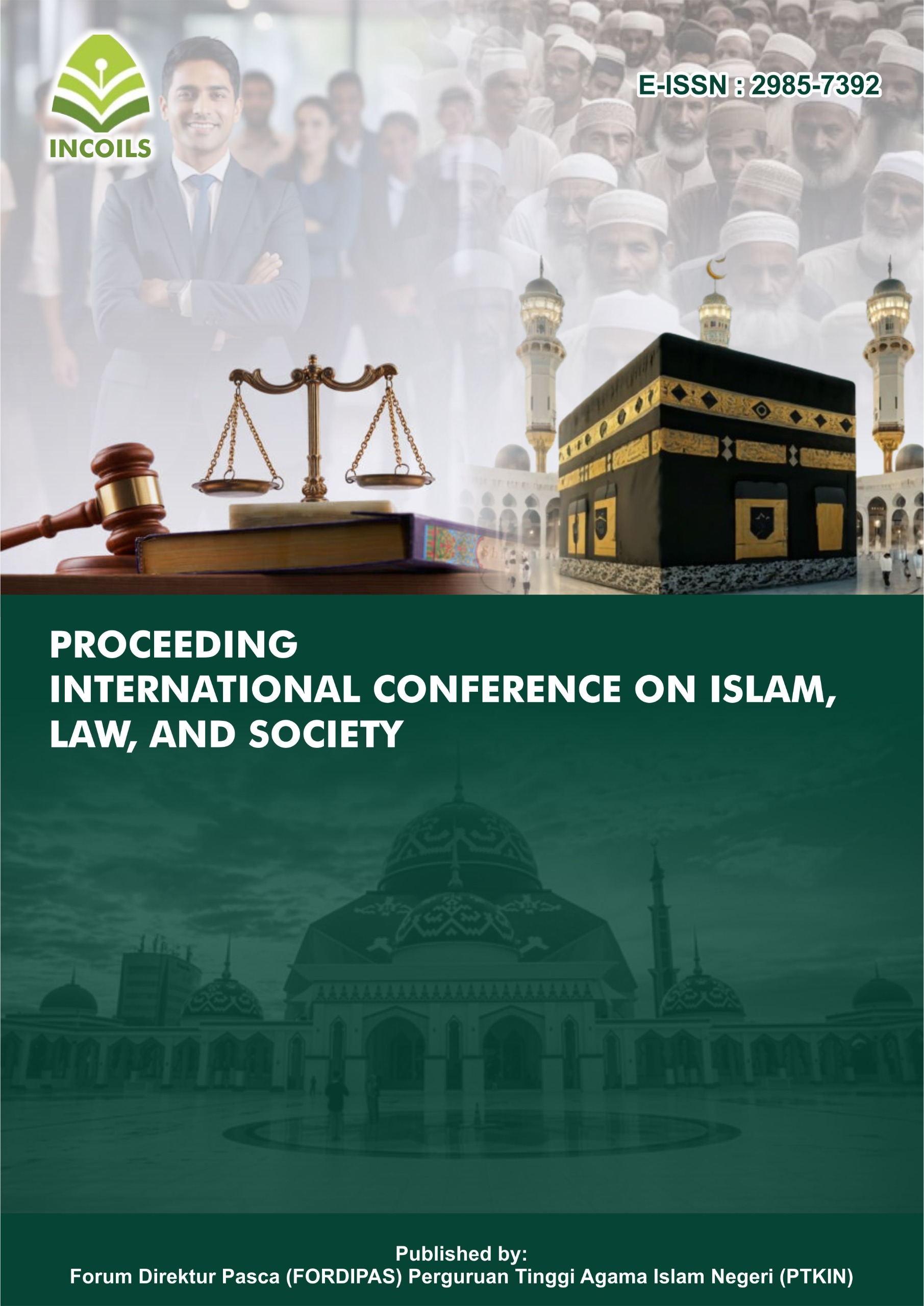Curriculum Management in Improving the Quality of Education at Al Kamal Blitar Integrated Islamic Boarding School
DOI:
https://doi.org/10.70062/incoils.v3i1.190Keywords:
Management Curriculum, Quality of GraduatesAbstract
This research is motivated by the low quality of graduates produced by educational institutions in Indonesia, especially Islamic boarding schools. Apart from that, Islamic boarding school must be able to maintain their existence as education providers by producing quality graduates who meet competency standards and community needs. The research purpose are to determine curriculum planning, curriculum implementations, and curriculum evaluation in improving the quality of graduates at the Al Kamal Islamic boarding school.. The author uses qualitative research methods with a single case study type of research. Data collection uses interviews, observation and documentation. Data analysis techniques consist of data reduction, data presentation, as well as drawing conclusions and verification. The results of this research include 1) The curriculum at this Islamic boarding school combines traditional and modern curriculum, the curriculum is implemented dynamically following the times and conditions that are relevant for application. 2) Application of traditional curriculum such as diniyah learning, reciting the quran, shawir etc, and implementation of modern curriculum such as intensive Arabic and English, extracurriculars, etc. 3) Several evaluations of the curriculum have been carried out including: class mapping evaluations, daily, monthly and annual evaluations, and student graduation evaluations.
References
East Java Province Central Statistics Agency. "Number of Madrasah Aliyah (MA) Schools Under the Ministry of Religion According to Regency/City in East Java Province, 2021/2022 and 2022/2023," 2023. https://jatim.bps.go.id/statictable/2023/07/ 20/2929.
Dhofier, Zamakhsyari. Islamic boarding school traditions. Jakarta: LP3S, 1998.
Famila, Rosa, Sulistyorini, and Agus Zainul Fitri. "Strategy for Implementing Islamic Boarding School Curriculum Management to Attract the Interest of Prospective New Students." Koulutus Journal: Kahuripan Education Journal 6, no. 1 (2023).
Hamalik, Oemar. Basics of Curriculum Development. Bandung: PT. Rosdakarya Youth, 2009.
Hamid, Hamdani. Educational Curriculum Development. Bandung: CV. Faithful Library, 2012.
Hasanah, Risalatul, and Mohammad Kosim. "Analysis of Charismatic Leadership Style in Maintaining the Traditional Values of Traditional Islamic Boarding Schools at the Nurul Huda Islamic Boarding School Kamundung Sampang." Re-JIEM (Research Journal of Islamic Education Management) 4, no. 1 (2021): 72–85. https://doi.org/10.19105/re-jiem.v4i1.4820.
Magdalena, Ina, Hadana Nur Fauzi, and Rafiza Putri. "The Importance of Evaluation in the Learning Process and the Consequences of Manipulating It." Bintang: Journal of Education and Science 2, no. 2 (2020).
Manab, Abdul. Learning Curriculum Management in Madrasas. Yogyakarta: Kalimedia, 2015.
Daughter, Adel Andila. "East Java will be the province with the most drug cases in 2022." Good Stats, 2022. https://goodstats.id/article/jawa-timur-jadi-provinsi-dengan-kas-narkoba-paling-besar-pada-2022-vqQ0S.
Ruhimat, Toto. Curriculum And Learning. Jakarta: Rajawali Press, 2015.
Rusman. Curriculum Management. Jakarta: PT. Grafindo Persada, 2009.
One Data from the Ministry of Religion of the Republic of Indonesia. "Number of Islamic Boarding Schools, Teachers and Santri by Province," 2021. https://satudata.kemenag.go.id/.
Susilo, Agus, and Ratna Wulansari. "The History of Islamic Boarding Schools as Islamic Education Institutions in Indonesia." Tamaddun: Journal of Islamic Culture and Literature 20, no. 2 (2020): 83–96.
Wahyudin, Din. Curriculum Management. Bandung: PT. Rosdakarya Youth, 2014.
Yuhasnil, Yuhasnil, and Silvia Anggreni. "Curriculum Management in Efforts to Improve the Quality of Education." Journal Of Administration and Educational Management (ALIGNMENT) 3, no. 2 (2020): 214–21. https://doi.org/10.31539/alignment.v3i2.1580.
Downloads
Published
How to Cite
Issue
Section
License

This work is licensed under a Creative Commons Attribution-ShareAlike 4.0 International License.







